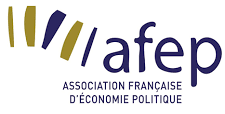APORDE
African Programme on Rethinking Development Economics
5 – 19 May 2011
Johannesburg, South Africa
Supported by
the Department of Trade and Industry of South Africa (the dti),
the French Development Agency (AFD),
and the French Embassy in South Africa,
with the French Institute of South Africa (IFAS)
We are pleased to announce that the fifth edition of the African
Programme on Rethinking Development Economics (APORDE) will be held in Johannesburg (South Africa) from the 5th to the 19th of May 2011. APORDE is a high-level training programme in development economics which aims to build capacity in economics and economic policy-making. The course will run for two weeks and consist of lectures and seminars taught by leading international and African economists. This call is directed at talented African, Asian and Latin American economists, policy makers and civil society activists who, if selected, will be fully funded.
We encourage everyone with an interest in development to read and distribute this call for applications. Please note that we receive many high quality applications and that, as a result, entry into APORDE will be very competitive (only 30 applicants will be selected).
APORDE is a joint initiative of the Department of Trade and Industry (the dti), the French Development Agency (AFD) and the French Embassy in South Africa. Alice Amsden (MIT), Thandika Mkandawire (LSE), Michel Aglietta (Institut Universitaire de France), Ha-Joon Chang (University of Cambridge) and Ben Fine (SOAS) are among the lecturers who have taught on the programme. Nicolas Pons-Vignon (CSID, Wits University) is the APORDE Course director.
For more information, visit [www.aporde.org.za->http://www.aporde.org.za]
APORDE is being conducted in a climate when there is much greater contestation of ideas around the possible options for economic development and industrialisation than in many decades. An initiative like APORDE can make a very important contribution in offering us new insights and reflections on the critical questions of building a developmental state and mounting a serious industrial policy.
Dr. Rob Davies, Minister of Trade and Industry, Republic of South Africa
Background
Africa is probably the continent most affected by the poor availability of cutting-edge research and teaching in economics. While only a few African countries have experienced sustained economic development in the past 50 years, African governments and civil societies are weakly equipped to respond critically to external initiatives aimed at their development and to generate endogenous strategies. The tide is, however, gradually turning: in South Africa and in other African countries, the need for “more” (rather than merely “better”, which has often proved to mean “less”) state intervention in economic affairs is increasingly recognised.
Crucially, economic take-off appears bound to remain a pipedream unless it is premised on developmental policy; while South Africa’s DTI is leading the way with its industrial policy, few African decision makers feel equipped to design and implement such policies, a gap which APORDE aims to help filling.
APORDE
APORDE will allow talented academics, policy makers and civil society representatives from Africa, Asia and Latin America to gain access to alternatives to mainstream thinking on development issues and to be equipped in a way that will foster original thinking.
Participants will receive intensive high-level training and interact with some of the best development economists in the world and with other participants.
APORDE will cover essential topics in development economics, including industrial policy, inequality, poverty, financial crises and social policy. Lectures will equip participants with key information pertaining to both mainstream and critical approaches.
Day lectures will last for three and a half hours, while a number of shorter lectures will also be organised. The programme of the seminar will be communicated at the beginning of 2011 and posted on the APORDE website. For information, the programmes of the first four seminars are available on www.aporde.org.za
All costs – travel, accommodation, conference fee and per diem – will be covered for selected applicants.
The seminar will be held in Johannesburg from the 5th to the 19th of May 2011.
The venue will be confirmed at a later stage.
Applications
Applicants must demonstrate first-class intellectual capacity and (at least some) prior knowledge in economics, as well as proficiency in English. However, the objective of APORDE is to draw participants from a broad range of backgrounds; persons who have demonstrated exceptional capacity in their professional lives are invited to apply.
The main body of participants will be drawn from Africa, but we welcome applications from Asians and Latin Americans who have research or work experience related to Africa.
Prospective applicants should send
* A completed application form (available on www.aporde.org.za
* An official transcript (showing courses taken and grades obtained);
* 2 reference letters, where possible 1 academic and 1 professional, which should be sent directly to aporde@ifas.org.za
* Proof of English proficiency for applicants whose main medium of instruction or work is not English. Results of standard English proficiency tests (e.g. TOEFL or IELTS) will be preferable, but other proof may also be accepted (e.g. a sample of written work in English).
Applications, accompanied by a covering letter indicating the applicant’s full contact details (including e-mail address and telephone numbers), should be sent to aporde@ifas.org.za
The application should actually reach Nicolas Pons-Vignon by Monday 6 December 2010 at midnight at the latest. Incomplete or late applications will not be considered. Please note that individual acknowledgement of applications will be sent by e-mail only. Candidates will be notified by e-mail of the outcome of their applications at the latest by early March 2011.
Article original


